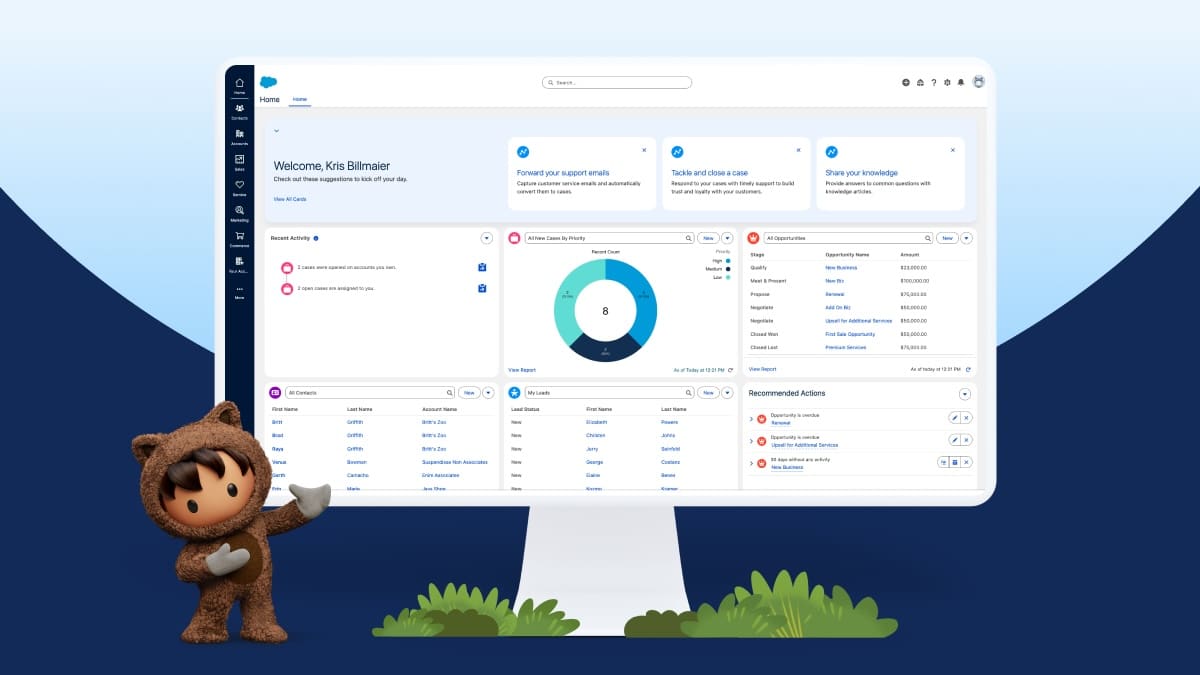Artificial intelligence is no longer a future promise: it is transforming employment at major tech companies. Marc Benioff, CEO of Salesforce, confirmed that the company has reduced its support division from 9,000 to 5,000 jobs thanks to the implementation of AI agents.
The announcement was made on the podcast The Logan Bartlett Show, where Benioff stated that automation has enabled Salesforce to process an unprecedented number of leads.
“These have been eight of the most exciting months of my career. I’ve been able to rebalance the support team, and now I need fewer people,” Benioff said.
The Direct Impact: 4,000 Jobs Reduced
Salesforce, which had 76,453 employees as of January 2025, has seen how AI has profoundly changed task distribution.
AI agents handle breaking down complex goals into small steps, solving specific tasks and freeing human teams for more delicate cases. According to Benioff:
- Previously, there were more than 100 million unattended leads accumulated over 26 years.
- Now, AI agents proactively manage those contacts.
- Support operates on a 50% AI – 50% human scheme, something unimaginable just a year ago.
The CEO’s analogy is clear: “It’s like a Tesla in autonomous mode. It drives on its own, but when it encounters a situation it doesn’t understand, it asks you to take control.”
A Cultural Transformation at Salesforce
Benioff explained that the company has introduced a role called “omnichannel supervisor”, responsible for coordinating humans and AI agents in customer service. This hybrid approach is redefining not only roles but also Salesforce’s organizational structure.
The staff reduction is not an isolated event; it is part of a broader change in the way work is being distributed.
Industry Debate: Does AI Replace or Drive Growth?
Benioff’s view contrasts with other tech leaders:
- Jensen Huang, CEO of Nvidia, is a strong advocate of agentic AI. He ensures that productivity gains from AI translate to more growth and profits, not necessarily layoffs.
- Huang states: “When a company improves with AI, the next step is not an announcement of layoffs but growth or record profits.”
- Asha Sharma, AI product director at Microsoft, recently noted that AI agents could eliminate middle management layers and change corporate structures, without always leading to staff cuts.
The Human Side of Disruption
The reduction of 4,000 jobs at Salesforce is one of the earliest visible examples of how AI agents not only redefine processes but also impact direct employment in sensitive areas such as customer support.
The industry’s challenge will be to find a balance between efficiency and job sustainability:
- AI enables faster and more accurate customer responses.
- But it also creates uncertainty among thousands of employees about their future.
The question is no longer whether AI will transform employment but how and at what pace.
Frequently Asked Questions (FAQ)
How many jobs did Salesforce cut due to AI?
Marc Benioff confirmed a reduction of 4,000 support roles, decreasing from 9,000 to 5,000 employees in that division.
What tasks do AI agents perform at Salesforce?
They manage unattended leads, respond to support inquiries, and break down complex tasks into manageable steps, always under human supervision.
Do all tech leaders share Benioff’s perspective?
No. While Benioff associates AI with staffing cuts, Jensen Huang (Nvidia) claims it drives growth, and Microsoft anticipates structural changes rather than massive layoffs.
Is customer support the only area affected?
For now, yes. But Benioff and other executives acknowledge that AI agents could expand into sales, cybersecurity, chip design, and overall business management.
via: businessinsider

